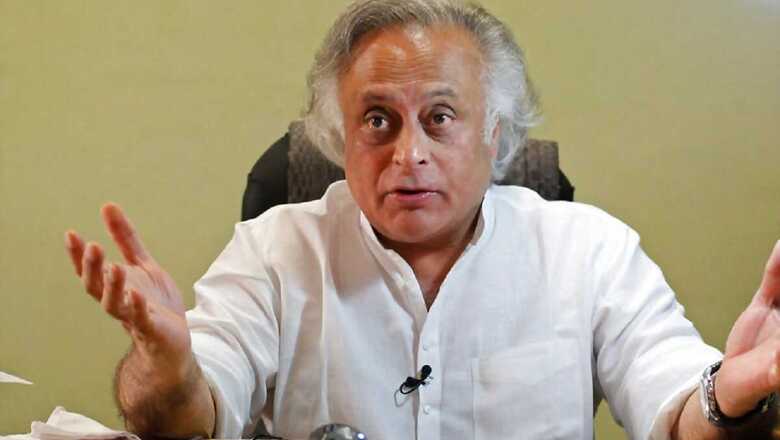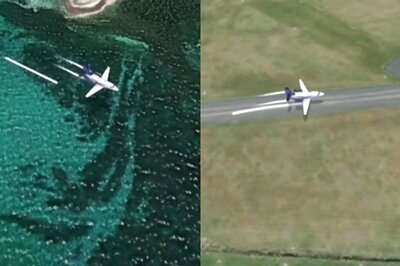
views
Congress leader Jairam Ramesh has accused Environment Minister Prakash Javadekar of "misrepresenting" the implications of the Draft EIA Notification on the country's environmental regulatory framework and its impact on environment. In a letter to Javadekar, Ramesh reiterated his strong objections and said the notification is "fundamentally flawed".
Ramesh, a former environment minister, said the Standing Committee met on August 7 and was apprised by officials on the Draft EIA Notification 2020.
"I am compelled to say that you are misrepresenting the implications of the Draft EIA Notification, 2020, on our country's environmental regulatory framework and its impact on the environment," Ramesh said, adding that he has read his reply in conjunction with the presentation made by the officials, along with the feedback received from various stakeholders.
"The notification is fundamentally flawed and makes a mockery of the prime minister's many statements on the need to protect the environment and India's leadership in this regard," he said.
The Congress leader asked how can a subordinate legislation override the parent Act from which it is derived like the Draft EIA Notification 2020 does vis-à-vis the Environment Protection Act, 1986.
"Your claim that the clearance is not an ex post facto one as 'it is prospective in nature, and previous actions will be penalized' is contrary to how it will actually play out in reality.
"If the clearance permits the illegally constructed portion of the project to remain or the illegal operating part of the project to continue, and there is no direction for demolition of the illegal portion or reduction of the illegally enhanced capacity, then it is not a prospective clearance. It is being granted ex post facto, and it is regularizing the illegality committed by the project proponent," he said in his letter to Javadekar.
He said it is unclear what is meant by the objective of bringing all violators "under the regulatory regime". It appears from the processes proposed in Clause 22 of the Draft Notification that the government's objective is to give all the violators an opportunity to regularise their illegal activities," he alleged.
"First and foremost, the government must punish the violators. The punishment must not only be proportionate to the damage caused to the environment, it must also deter future violations by making breach of law an extremely costly proposition for the project proponent — not just financially but also due loss of reputation, and inability to get future regulatory clearances," he alleged. Ramesh said the companies violating the law most certainly cannot be allowed to remain in "perpetual unregulated status" — but that could mean simply ensuring they are shut down and the violation brought to an end along with other penal action!
"It does not require these violations to be condoned by the government," he said. The former environment minister said given the glaring problems and the deep concern caused by the Draft EIA Notification among the people across the country, "I reiterate that the Notification be kept in abeyance until the Standing Committee has examined the Draft Notification in detail, a role you have been good enough to acknowledge in your communication on July 26."




















Comments
0 comment